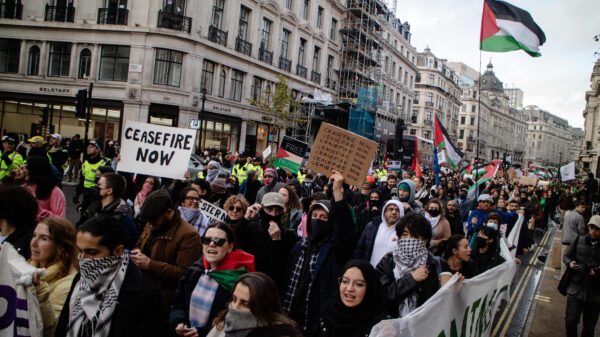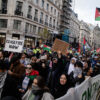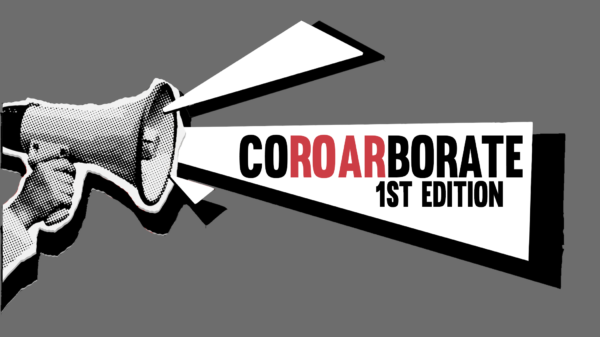Roar writer Violeta Fernandez Dieguez on protests in Russia against PM Vladimir Putin and his arrest of opposition leader Alexei Navalny.
For the past month, protests have sparked throughout Russia. These have taken place due to the arrest of Kremlin critic Alexei Navalny. He was put in jail after he released a documentary exposing Prime Minister Vladimir Putin’s corruption. Now, amidst the Covid-19 crisis, people are taking to the streets demanding Navalny’s freedom, as well as their own.
Navalny has been sentenced to three and a half years in jail. He states that “the [guards] and the cage are a demonstration of weakness. You can’t jail millions of people”. Even from his confinement, he encourages people to continue fighting for democracy.
The film exposed the level of corruption that Putin and his allies have established, all culminating in the $1.3 billion palace that the Prime Minister has allegedly built for himself. Putin’s past life as a KGB spy is debunked, pinning him as a fraud. It makes the case that Putin is indeed the richest man in the world. This is only possible thanks to his carefully crafted network of shell companies, associates, familiy members and mistresses.
Now, Russians are taking to the streets. Tens of thousands of protesters face the cold weather. More than 5,000 were detained on Sunday, 1,000 of them in Moscow alone. Videos show demonstrators from all ages chanting: “Putin is a thief” and “freedom for Russia”. Officials have declared the protests illegal, warning of the spread of coronavirus.
Looking at the past: The Snow Revolution
This is not the first time Russians have called for Putin’s resignation. The Snow Revolution (2011-13) brought more than 300,000 people to protest the 2011 election results, which were regarded as fraudulent. Navalny was one of the three main figures in the protests. He ran for mayor of Moscow in 2013 but lost to Putin’s candidate, which added fuel to the fire.
These three leaders faced great danger by critiquing the establishment. When officials sentenced Sergei Udalstov to parole, he was later detained for parole violation. In 2015, Boris Nemstov was assasinated. Alexei Navalny was charged for embezzlement many times and in jail he was poisoned. The charges, poisoning and death were not officially linked to the Kremlin. But it is common knowledge that Putin is the man behind this.
Putin remained in power throughout the revolution. In fact, his approval ratings rose with a new conservative mindset and, more importantly, the annexation of Crimea. Between Frebruary and March 2014, his approval ratings went from 65% to 80%. This goes to show that Putin needs to find a way to get the Russians back on his side.
What could Putin do now?
Throughout 2020, Putin has faced backlash. Most of it is due to how he has dealt with Covid-19. Almost 4 million people have been infected, out of which 75,000 have died. These figures may have been tampered with, since officials have understated the death toll in the past.
Things are now looking up thanks to the Russian vaccine, Sputnik V. The public was initially sceptical of its effectiveness, but it is now registered for use in 20 countries. Is Sputnik V enough for Russians to turn back to Putin?
If not, could the economy help bring approval ratings back up? It seems unlikely. Growth rates have been steady at around 2% and Russia’s PIB per capita is the 63rd highest in the world – lower than many of the ex-soviet states. Russians are unhappy with their stagnant real incomes.
If Putin wants to keep his place until 2036, he must pull a trick from his sleeve and stoke up Russian nationalism once more.
The world’s response:
As expected, the western world has condemned Putin’s actions. The EU’s foreign policy chief, Josep Borrell, denounced his “widespread detentions and disproportionate use of force against protesters and journalists”. Anthony Blinken, the US Secretary of State, called for the liberation of Navalny and other protesters.
However, a few tweets are not enough to create change. If Russia is to be held accountable, real measures must be taken. Andrius Kubilius, the European Parliament’s Standing Rapporteur on Russia, stated that the “EU should use sanctions against Russia over Navalny”.
Moving forward, with or without Navalny
Even though Navalny is the face of the opposition, he’s not irreplacible. Him being in jail will not (and should not) stop protests in Russia. In fact, many Russians do not approve of Navalny but chose to protest against the way the Russian government is treating him.
Before his sentencing, Lyubov Sovol, from Navalny’s team, said that if Navalny was jailed they would “work with even more passion if it happens, fuelled by our anger.” If worse comes to worse and he is murdered, the protests in Russia would become even greater.
The fight for political freedom has turned into a black and white situation: either you support Putin or Navalny. Putin is walking on thin ice by remaining in power. With any wrong move, protests will erupt once more and the ice will start to crack. Will this be the beginning of another Russian Revolution?



















